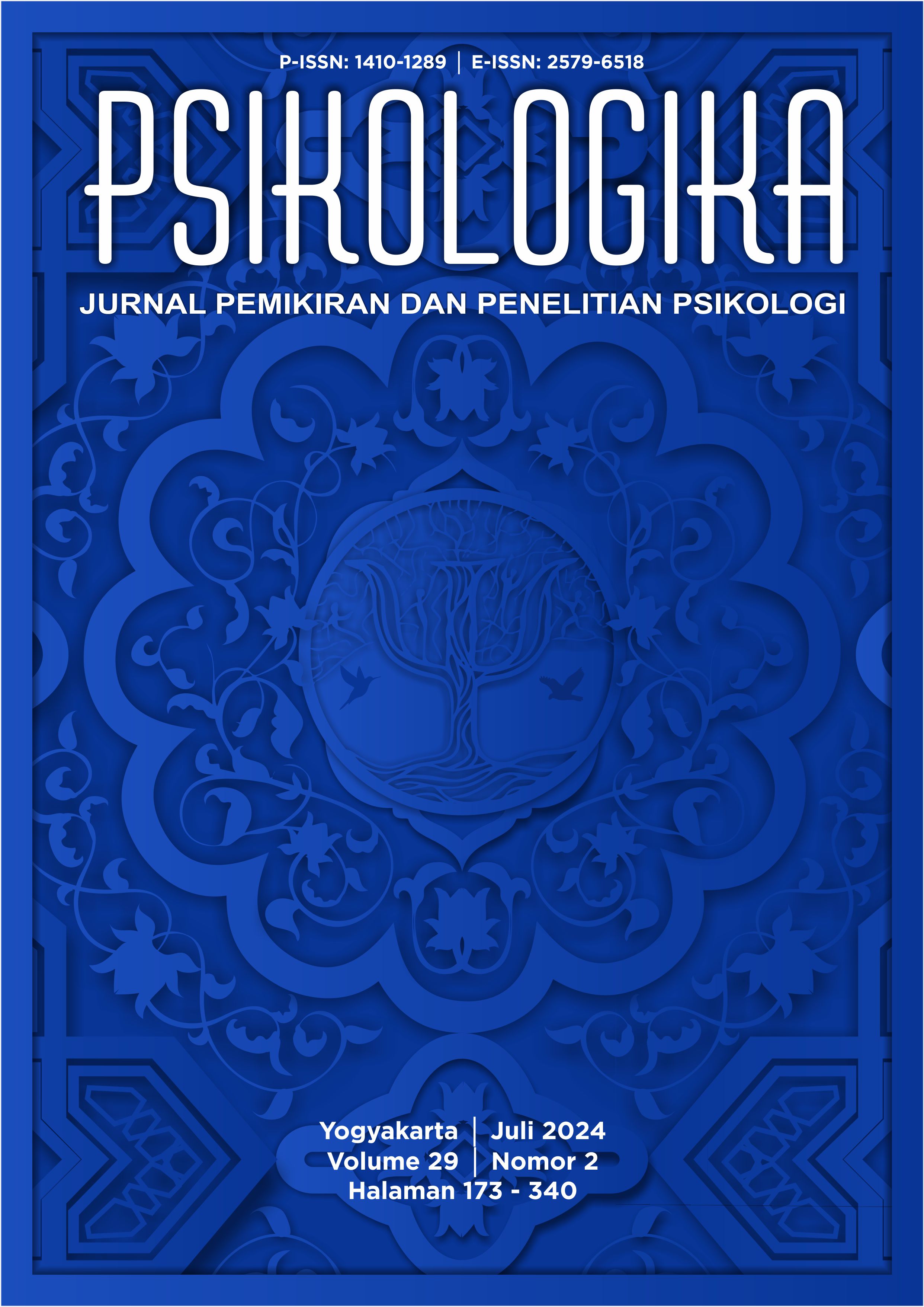Main Article Content
Abstract
Depression is a mental issue closely related to the surrounding society, especially among Generation Z. The stigma associated with depression has led to several negative consequences, hindering life-long well-being. Developing an anti-stigma intervention regarding depression should be a collective concern. Therefore, this study aimed to investigate the effectiveness of photovoice-based videos as an anti-stigma intervention for depression. It included 29 Bandung-based Generation Z university students, using a pre experimental design with one group pretest-posttest method. In this study, data were analyzed using normality tests, categorizations, and paired sample t-tests. The t-test results showed that the screening of photovoice-based videos caused a significant difference between pretest and posttest scores, confirming the rejection of H0 and the acceptance of Ha. Therefore, photovoice-based videos proved effective in reducing depression stigma among Generation Z university students in Bandung.
Keywords
Article Details
Copyright (c) 2024 Firdhaniaty Rachmania, Rizva Rahmadien Salama Budiman, Maharajni Budiman, Larasati Khairunnisa, Rival Muhammad Pangersa Gunanagara, Farhan Zakariyya

This work is licensed under a Creative Commons Attribution-ShareAlike 4.0 International License.
Authors who publish with this journal agree to the following terms:
- Authors retain copyright and grant the journal right of first publication with the work simultaneously licensed under a Creative Commons Attribution-ShareAlike 4.0 International License that allows others to share the work with an acknowledgment of the work's authorship and initial publication in this journal.
- Authors are able to enter into separate, additional contractual arrangements for the non-exclusive distribution of the journal's published version of the work (e.g., post it to an institutional repository or publish it in a book), with an acknowledgment of its initial publication in this journal.
- Authors are permitted and encouraged to post their work online (e.g., in institutional repositories or on their website) prior to and during the submission process, as it can lead to productive exchanges, as well as earlier and greater citation of published work (See The Effect of Open Access).




